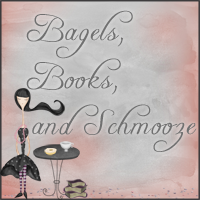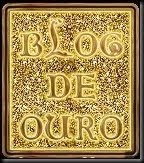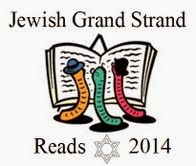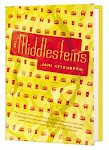Wednesday, December 22, 2010
Hadassah's 2010 Ribalow Prize Winner
Sara Houghteling has been awarded for 2010 The Harold U. Ribalow Prize award by Hadassah, for her novel, Pictures at an Exhibition.
The award is given each year by the Jewish zionist women's organization each year. It is a annually award for Jewish fiction. It must be written in the english language, and either be written in short story or novel form.
You can read Hadassah magazine's, December/January issue with a excerpt of her novel. Read the article in the Forward about the the background of her novel.
Born to an art dealer and his pianist wife, Max Berenzon is forbidden from entering the family business for reasons he cannot understand. He reluctantly attends medical school, reserving his true passion for his father s beautiful and brilliant gallery assistant, Rose Clément. When Paris falls to the Nazis, the Berenzons survive in hiding. They return in 1944 to find that their priceless collection has vanished. Madly driven to recover his father s paintings, Max navigates a torn city of corrupt art dealers, black marketers, Résistants, and collaborators. His quest will reveal the tragic disappearance of his closest friend, the heroism of his lost love, and the truth behind a devastating family secret.
Sara Houghteling graduated from Harvard College in 1999 and received her master's in fine arts from the University of Michigan. She is the recipient of a Fulbright scholarship to Paris, first prize in the Avery and Jules Hopwood Awards, and a John Steinbeck Fellowship. She currently lives in California, where she teaches high school English.
Mazel Tov !! Sara
This was taken from Hadassah's magazine's article:
Sara Houghteling lives in Berkeley, California, and grew up in Brookline, Massachusetts, she is in love with Paris. It is the setting of her first novel, Pictures at an Exhibition (Vintage), winner of this year’s Harold U. Ribalow Prize. She began her work on the novel while she was on a Fulbright Scholarship in the French capital in 2005. “It was an opportunity to focus on French art, French music, French
history,” Houghteling, 33, says. “It kept calling me back.”
Pictures is the story of Max Berenzon, the only son of a successful Jewish art dealer, in the years leading up to and following the fall of Paris during World War II. The family survives in hiding, but they return to the city to find their priceless art collection gone and Paris shrouded in duplicity and silence. Max chases his dual obsessions: his father’s paintings and former assistant, Rose Clément.
The Harvard College graduate didn’t know much about Nazi looted art when she began her research, inspired by Lynn H. Nicholas’s The Rape of Europa (Vintage). She found it “strange, distressing and complicated” how the systematic plunder unfolded. “It’s horrifying,” she adds, that the Nazis used the deportation of Jews to gather art for their personal benefit, aesthetic purposes and to finance the Final Solution.
Houghteling learned that after the war European art dealers went into what she calls “lockdown mode” to protect each other. “They all had benefited in some way from what was done to the Jewish art dealers and collectors,” she explains.
She also came across the out-of-print autobiography of Rose Valland, former curator of Jeu de Paume national gallery—on whom she based the character of Rose Clément. “The real Rose was incredibly heroic,” says Houghteling. “It is mind-boggling how one woman almost single-handedly orchestrated a complex plan to outwit the Nazis in their final plunder,” by notifying the Allies and resistance groups about the movement of trains containing artworks, saving thousands of France’s masterpieces from destruction.
In addition to her own love of Paris, her father lived in France after World War II, where her grandfather worked on the Marshall Plan. “Having their perspective on France after the war set the stage [for the book],” she says. Also thanks to them, Houghteling learned French, though she admits to having “a good accent, but comic grasp of grammar.”
The author’s love of music—she studied at the New England Conservatory as a youngster—is evident in the novel. In fact, the title is borrowed from the 1874 piano suite by Modest Mussorgsky. The exhibit that inspired the composer had been taken down, she explains, “and all that is left is the haunting remains of what was.”
Houghteling teaches high school English at a Berkeley private school. Her husband, Daniel Mason, is also a fiction writer; the couple spent four months in France recently, both on fellowships from the Camargo Foundation in Cassis, near Marseilles, where Houghteling worked on her second novel.
The designation of Jewish writer is one that Houghteling, who grew up belonging to a Reform temple, accepts with no misgivings. “Judaism is so much a part of my identity that my characters most easily tend to be Jewish,” she says. “Judaism is the melody in the back of my head.” Plus, she adds, “primarily when dealing with World War II era, the ’30s through the ’50s—the time period that preoccupies me the most—I can’t write without thinking what it was like to be Jewish at that time.”
In fact, she says, the experience that “solidified [her] Jewish identity” was her job as editorial assistant to Holocaust survivor Emmanuel Tanay, which she did while earning her master’s of fine arts at the University of Michigan in Ann Arbor. Tanay was working on a memoir of his childhood in Poland. “I had always been drawn to the Holocaust,” she adds, “but the sustained immersion in another person’s life from that era [was incomparable].”
Subscribe to:
Post Comments (Atom)





















.jpeg)









1 comment:
Sara Houghteling is about to be awarded the 2010 Harold U. Ribalow Prize by Hadassah Magazine. I'd like to send you a full press release on it. Can you e-mail me with your e-mail address?
Thank you,
Samantha Friedman
Rabinowitz/Dorf Communications
2852 Connecticut Avenue, NW
Washington, DC 20008
Samantha@rabinowitz-dorf.com
(202) 265-3000
Post a Comment